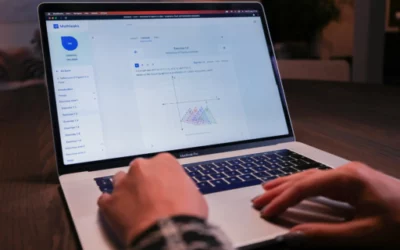Summer School doesn’t usually sound enticing – for most summer school students, it’s an opportunity to retake a class in which they didn’t do well to avoid falling behind and having to retake the class next year. But it’s more widely used and beneficial than you might think: In 2020, 3.4 million 16 to 19-year-olds were enrolled in summer school, up from an estimated 3.3 million in 2019 (reference: https://www.thinkimpact.com/summer-school-statistics/).
For most students, taking a summer break creates a sometimes harmful learning gap. Leaving school for three months causes a lot of brain power normally used in school to not be practiced and some essential skills learned just the year before can be forgotten. In fact, continued learning during the summer months has actually shown to help improve overall results year-round.
Summer school helps not only to eliminate the risk of being held back but may also improve a student’s performance in the next school year. Studies found that continued attendance in summer school could result in up to 25% of improvement in mathematics. While in general, 40% to 50% of multi-year summer school attendees held an advantage of one grade level in post-tests. In this article, we will share some of our top tips to make your summer school experience a success and reap the benefits!
- Set goals
- Have a plan
- Repurpose old notes
- Be consistent
- Participate
- Seek additional support
- Get outside
- Have fun
Set goals
You may have conflicting feelings about being in summer school, especially if your friends aren’t attending with you. That’s why it’s important to set goals early on. Establishing goals for yourself will help you to stay motivated and stay on track throughout the course of the summer. Outlining goals from the beginning and staying focused on why you are there will help you see progress and keep going.
Have a plan
A study schedule will help you increase your productivity by breaking down your learning into manageable parts. Outline what you need to accomplish each day to help yourself remember what you need to do and when you need to do it. You will be able to study and memorize more successfully while avoiding stress. Furthermore, having a study schedule with daily to-dos can help you avoid procrastinating on studying for final exams.
When it comes to academic achievement, it’s critical to make optimal use of your time, and keeping a study schedule written out is just as crucial as constructing one. A study schedule allows you to account for the unexpected. For example, if something comes up – like a spontaneous summer bonfire party – you won’t have to worry because you already made time to study.
Repurpose old notes
When you’re retaking a course, you probably have a lot of old notes and pages of homework from before. Don’t throw these out! Instead, use them as a reference point and additional help when going through the course again. They can be useful study materials and a visual to see what you were strong in and where you may have been struggling. Going through old notes can even help the material stick in your brain through repetition.
Be consistent
Show up! Don’t let the temptation of skipping class get to you. A huge part of success in anything is being present and applying yourself.
Even if you have chosen a less demanding summer course, you should attend courses to finish the program properly. In the short study period, a single missed lesson may make it impossible to catch up on missing work. Because most summer courses contain regular assessments, missing classes will affect your grade.
Allow yourself a weekly reward for showing up as an incentive to get up and go every day. This consistency is crucial to comprehending each lesson, getting enough practice in, and building it into your brain.
Participate
Participation has a proven effect on learning as you immerse yourself in the lesson and use alternate styles of learning such as verbal, auditory, and visual when doing so. A study found that “72% of surveyed students felt that an increase in classroom involvement would lead to academic improvement. While 56% of the students felt that their knowledge and understanding of math would improve if they participated more frequently”. So don’t be afraid to ask questions, answer questions, and get involved!
In most summer programs, there is a lot of interaction between students and teachers. Teachers may devote more attention to each student because class numbers are much smaller. Please feel free to ask questions and provide your thoughts. Practical tasks will put your social and group-work abilities to the test, as well as motivate you to share your ideas with your classmates.
You may participate in a range of learning activities, including:
- lectures
- seminars
- workshops
- class assignments
- Discussions
- real-life scenarios
- group activities
Seek additional support
Summer school hours are less than the traditional school year hours, leaving more knowledge to be crammed into a shorter period of time. To make the most of summer school, getting a little extra help is always a good idea. This additional support is great for taking practice quizzes, getting questions answered, and refreshing your memory. Mathleaks is the perfect spot to score an A in your math summer school class and get ahead on next year’s studies. Offering a range of subjects and services, Mathleaks works to support you and fill in the gaps where you need them.
Get outside
Summer offers the distraction of nice weather. But who says you can’t take your class work outside? 30 minutes of Vitamin D has proven results on mood, energy, and combatting anxiety. While the sun is out, head outside to study and get some homework done. You’ll soak up those rays while soaking up knowledge, making it the ultimate win-win.






